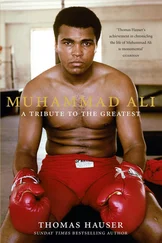Hanane couldn’t bear to see her mother selling her soul to an eternal being in this way. Eternity is only nothingness, she told her. “She prays to God, do you realize that?” she told the shrink. “She prays to an eternal being who depends on her.”
Hanane didn’t plan anything. At the age of thirty-five, after nineteen years of therapy, things erupted inside her abruptly. She could launch into endless monologues and then right in the middle of a sentence sink into a silence heavier than a ton of leaden weights, then not move anymore, not speak anymore. At times, she would extract her little scrap of paper from her pocket and would pass the rest of the session feverishly scrunching it up. Eventually the shrink knew exactly when Hanane would take out this crumpled scrap of paper that she carried with her everywhere. Since she’d been in therapy, she was never separated from it.
It was the therapist who had, at first, introduced the concept to her, inviting her to write down everything that crossed her mind. He had hoped in this way to make her regain contact with a chronological perception of time. “This is part of the game,” he told her at the beginning of a session, putting a sheet of A4-sized paper down in front of her. On that day, the forty-five minutes elapsed like that. Hanane didn’t say one word and was content to stare at the paper without moving. She had the impression that the page’s emptiness had spread throughout the room, devouring the shrink, his pipe, and the smell of tobacco. She shook her head a few times. Aside from several televised newsflashes, she didn’t think of anything that she could write down.
Just before the end of the session, she grabbed a black pen resting on the desk and wrote diligently: January 20, 1992 = the death of my father = the arrival of the hourglass . Then, without warning, as though she’d never simply just stopped walking, she got up out of the wheelchair, betraying no sigh of surprise, and left.
When she saw her daughter walking, the mother had to restrain herself from raving. The shrink had directed her not to show any signs of keen interest in anything in front of her daughter, for fear that too overt an allusion to her illness might block her anew. In any case, for him, victory resided above all in his client’s regaining her perception of time.
For the first time, Hanane connected an object of time measurement to facts and dates. From this day on, she started writing down all events related to January 20 that came after the arrival of the hourglass. In her eyes, no other date in the year deserved to be identified. For nineteen years she only marked down 20th of Januaries. The shrink tried in vain to try to transform this exercise into a daily ritual, telling her that there were 365 days in the year, but nothing worked. Hanane only played this game on the 20th of January each year. This date was marked by different events between 1992 and 2010. Audrey Hepburn died January 20, 1993; Barack Obama was inaugurated president of the United States in 2009; George W. Bush was inaugurated eight years earlier; Arafat’s victory after the first Palestinian general elections in 1996; the former Argentinian dictator Reynaldo Bignone was arrested in 1999... She even found it useful to compile an inventory of deaths caused by the avian flu epidemic on January 20, 2007.
Hanane is feverish. The shrink fills his pipe. Their silence is interrupted by the sighs that rise in a crescendo. Hanane knows that the neighbor on the third floor has found a client. “Orgasms are a noisy hobby. And useless.” The shrink is surprised that she says this... she who is so focused whenever he appeals to her sense of perception. She even refuses to confirm the existence of her own body, each time that he tries to draw attention to the fact that she herself has aged since she started coming to him. Hanane would prefer to be outside of time and of her body. The sighs continue to reach them. She has to speak or plug her ears. She can’t stand the upstairs neighbor’s small cries. She has to cover them up. She twiddles her fingers and starts talking. He doesn’t like it when she speaks in bursts. He doesn’t like her fingers either.
“My mother keeps forbidding me to put the hourglass away. She says that she needs to have it there on the mantelpiece to remember my father. I still see him, sitting on his armchair. Just as the sand flowed through it, his head nodded from side to side. The problem is measurement. The neighbor’s screams are also a measurement. And then his head fell, soft like death. But life is also soft. I want to be so steep that nothing can move across me. Not your eyes, not your thoughts. I want to be steeper than time. This morning I passed by the hourglass and felt nothing for the first time. Do you know why? Because I discovered that time doesn’t exist. I should have thought about this earlier. I am my own free will. Only I, and I alone, can put an end to everything. God, time, eternity. I crush them. Like insects. It is enough just to think about it. Time doesn’t exist. Exit, time. Exit. Pshhht.”
“So what did you write down today other than that time doesn’t exist? After all, today is the 20th of January.”
“Nothing. Didn’t feel like it.” Then she corrects herself: “Oh yes, I wrote down that Kalthoum Sarrai died.”
“Don’t know her.”
“She played the part of Super Nanny in the French version of a show by that same name. She died of cancer. Like me. I died of that too.”
Her shrink frowns. He doesn’t like it when she starts using the past tense to speak about the future. He is quick to follow up: “What do you know about your own death?”
“Everything.”
“What do you mean, everything ?”
“Just that.”
“And what about joy? Won’t you ever list that?”
“Joy is flat.”
“What do you mean?”
“Just that. Flat. As flat as the Beqaa Valley.” She pantomimes a flat surface with her hands.
“But at the end of the day, all you mark down on your list are disasters, dictatorships, epidemics, and cancers. History has also known happy occasions... And friends? Don’t you have any that bring you joy?”
“Sure I do, but they’re all flat too.”
When her responses become incomprehensible, he knows it’s pointless to press on. But he always tries nonetheless. He wants to understand why Hanane persists in never listing events before 1992, the year her father died. Every time he has pursued this question with her, she has retreated into herself. Her retreat starts with her eyes. Her ability to talk follows, it becomes confused and then she’s silent. He tries in vain to tell her that she can’t mourn for so many years, but she absolutely refuses to touch the 20th of Januaries before the ones already on her list. Yet it’s his responsibility. Before the end of each session, he always mentions it. This time he grasps at a straw.
“But if time doesn’t exist, you could add the nonexistence of events before 1992 to your list.”
“It isn’t necessary to predict everything,” she answers tersely. Ever since she first deciphered his methods of diversion, she’s found it ludicrous to sidle up to madness.
The young woman’s closed expression makes him understand that a locked world has descended upon her. Her sense of urgency from the beginning of the session is now nothing but a memory. She doesn’t even take her crumpled list out of her pocket, as she always does when she wants to drown the silence with frantic movements. She will freeze, stand up, and, for the first time since she’s been coming to him, approach his desk. She doesn’t tell him that she finds him cowardly. Instead, she stares at him and with a sharp motion, thrusts out her hand to him.
Hanane has never yet shown any desire for physical contact whatsoever. Disconcerted, he holds his hand out to her in return. Her eyes focus on him, but she doesn’t make any another movement. Nervously, he leans slightly toward her. When their fingers touch, Hanane’s hand is as cold as a cadaver’s.
Читать дальше












